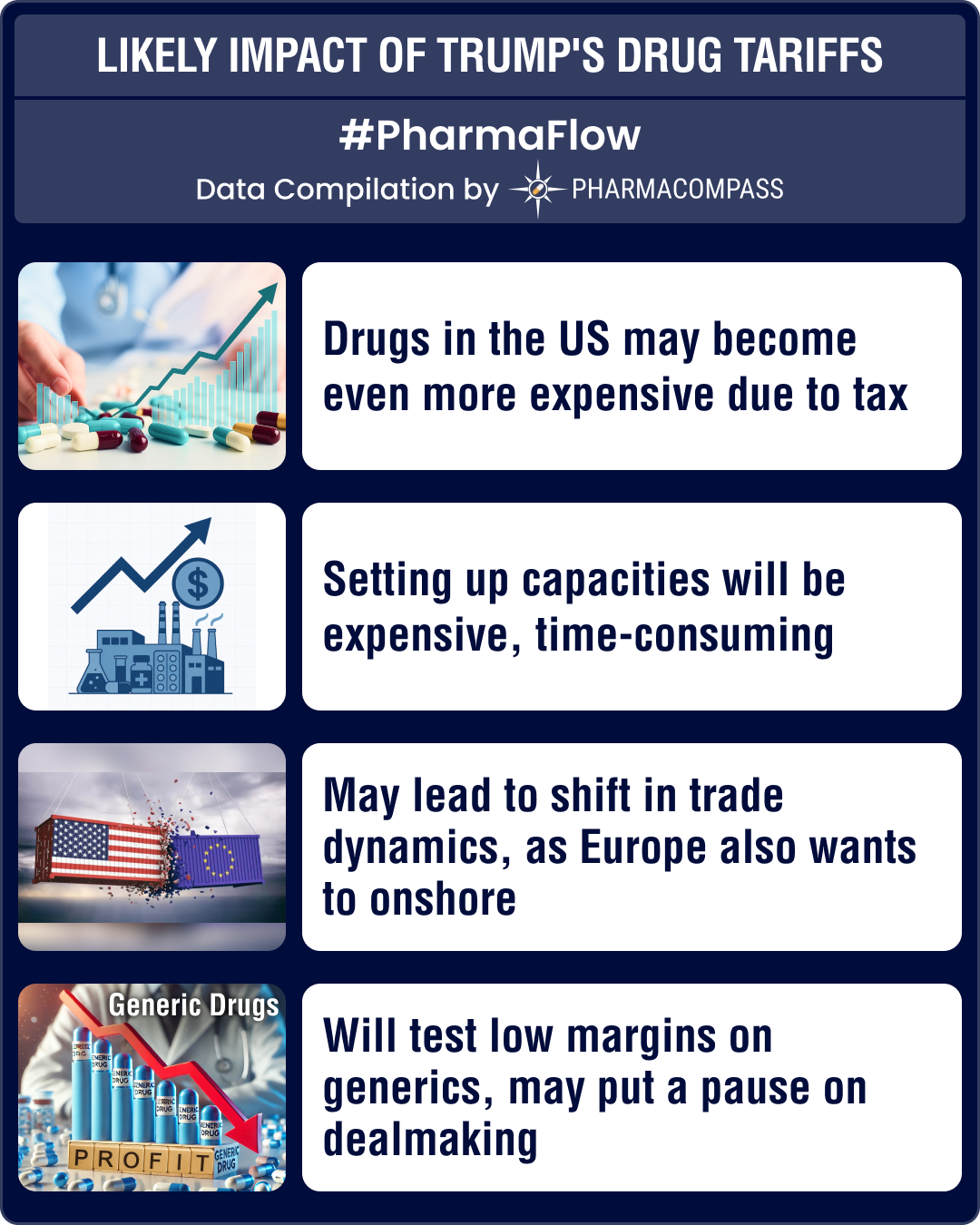
This week, Phispers gets you news on illegal exports of Metformin in India, Hillary Clinton’s stance on price gouging, a report’s recommendations on reducing India’s dependence on Chinese APIs, Pfizer’s patent dispute case in the UK and more.
Aspen Pharma fined for price
gouging in Italy
Last week, Italian antitrust authorities fined South Africa-based drug maker Aspen Pharmacare nearly US $ 5.5 million for halting supplies of several cancer drugs. This is being seen as a negotiating tactic designed to hike prices by as much as 1,500 percent.
The products whose supplies were halted are: Leukeran 2 mg (chlorambucil); Alkeran 50 mg / 10 mg powder and solvent (melphalan); Alkeran 2 mg (melphalan); Purinethol 50 mg (mercaptopurine); and Thioguanine 40 mg (thioguanine).
The price-gouging episode began after Aspen purchased the drugs from GlaxoSmithKline. It then began negotiations with the Italian Medicines Agency over pricing for the cancer medicines. According to the Italian Competition Authority, Aspen also used the threat of a shortage to achieve the prices it had sought, because the drugs temporarily disappeared from the market.
It would
be interesting to see the price rise in the US market for these products since Chlorambucil
and Thioguanine have no generics in the United States.
Clinton’s team had debated attacking FDA commissioner Califf, reveals WikiLeaks
Around this time last year, the pharmaceutical industry had come under severe criticism for price gouging. And, if emails released by WikiLeaks are to be believed, Hillary Clinton’s campaign team had debated attacking Dr. Robert Califf, over his ties with various drug makers. Back then, Califf had been nominated to head the US Food and Drug Administration. Earlier this year, Califf got named as FDA commissioner.
The email thread, pertaining to September 21-26, 2015, suggests how the issue had become a factor in her campaign. Through these emails, few members of Clinton’s team had weighed the pros and cons of picking a fight that would “fit into the larger themes we are trying to promote,” an email written by Clinton’s campaign press secretary had said.
Similarly, a senior policy advisor had written: “We could certainly signal that we want someone willing to stand up to pharma.”
Califf was the founding director of the Duke Clinical Research Institute, which conducts studies for companies. He has authored numerous papers with industry researchers. Two years ago, several large drug makers had partly supported his salary, while many others paid him for consulting work.
These email exchanges took place amid rising outrage over price gouging, triggered by Martin Shkreli (founder and former CEO of Turing Pharmaceuticals). In September last year, Clinton had taken a jab at Shkreli through a tweet, for hiking the price of the antimalarial drug Daraprim by more than 5,000 percent. Clinton’s campaign staff had tweeted: “FYI – We have started the war with Pharma!!”
Last month, Clinton issued a plan to contain prescription drug pricing. She proposed a federal panel of officials to determine if price increases for certain drugs are justified, authorize the federal government to directly purchase drugs through imports of competing drugs from other countries, and fine offending companies.
India initiates action against two Metformin makers for illegal exports
The Food and Drug Administration of Maharashtra, India has initiated action against two pharmaceutical companies – Pharmaceutical Products of India Ltd and Wanbury – for illegally rebranding and exporting a diabetic drug to Mexico, Brazil, Bangladesh and Pakistan.
A part of the bulk drug – metformin hydrochloride – was being manufactured by Pharmaceutical Products of India, based in Tarapur. It was manufacturing 300,000 kilos of metformin hydrochloride for export every month. The company, however, did not have an export licence. On further investigation, the department found that the drug was sold to another firm – Wanbury in Patalganga – that had an export licence.
The modus operandi was clear – Wanbury had an export licence and orders worth 650,000 kg per month of metformin HCL, but had a shortfall of 350,000 kg in manufacturing capacity, which was being fulfilled by Pharmaceutical Products of lndia. “Wanbury would just stick their labels on the drugs supplied by the latter without any quality checks,” said a Maharashtra FDA official.
“Such unholy alliances can have disastrous effects on the country's drug export sector,” the official added. The companies have been charged under the Drugs and Cosmetics Act.
Industry watchers share how deregulation brings further risks
Last week, in Speak Pharma, Bernard Plau, CEO of Akovia Consulting, talked about how fraud broke the trust of regulators. And this week, industry watchers – Dinesh Thakur and Prashant Reddy Thikkavarapu – share how deregulation by the Drug Controller General of India (DCGI) brings further risk, in an article published on The News Minute, titled “Deregulation of the pharma industry in the time of scandals’.
Since the Ranbaxy scandal, there have been several other scandals in the Indian pharmaceutical industry, and these have involved big names such as Sun, Dr. Reddy’s, Wockhardt, GVK Bio and Alkem. These companies have come under scrutiny from foreign drug regulators.
Thakur and Thikkavarapu say two kind of scandals have plagued the Indian pharma industry. The first is related to data fabrication by contract research organisations (CROs) that conduct bioequivalence (BE) testing. The second type involves drug companies indulging in fabrication of data during quality testing.
“Instead of increasing regulatory scrutiny, the DGCI has been on a drive to reduce the regulation governing the Indian pharmaceutical industry in the name of ‘Make in India’,” they added.
Indian trade body study suggests ways of reducing dependence on Chinese APIs
A study undertaken by trade body Assocham and market research firm RNCOS has highlighted how India’s overwhelming dependence on China for APIs has emerged as a worrisome area. The study has recommended steps that can help reduce imports of APIs from China – which stand at Rs 138.53 billion (US $ 2.08 billion), or 65.29 percent of the total API imports of Rs 212.16 billion (US $ 3.18 billion).
“This is all the more disconcerting in the face of louder narrative against reducing trade gap with China, which is well over US $ 51 billion,” the study says.
One of the main reasons for huge API imports from China is the low cost of manufacturing and subsidy there. Moreover, India levies negligible import fee. “The import fees should be increased in line with other counterparts”, the paper said.
The existence of multiple regulatory authorities for renewal of licences by India’s bulk drug manufacturers is also affecting production. “Therefore a single committee of various government departments should be formed to regulate the industry through a single window and audit of plants,” the study said. It also recommended developing mega parks for APIs across the country.
More bad news for Teva as it mulls acquisition of Korea’s Celltrion
Last week, PharmaCompass covered Teva’s misadventure in Mexico. Little did we know that more bad news awaited Teva. Just one month after Teva paid Regeneron US $ 250 million to get access to a new pain drug – fasinumab, the FDA has put its clinical trial on hold.
The news comes at a time when Teva is said to be considering the acquisition of South Korea’s Celltrion in order to strengthen its biosimilar portfolio. Going forward, biosimilars are said to be a key element of Teva’s overall strategy.
Teva and Regeneron’s fasinumab was being studied in a Phase IIb trial in chronic low back pain, among others tests including osteoarthrosis pain. The FDA is now asking the two partners for “an amendment of the study protocol” after seeing a case of adjudicated arthropathy (a disease of the joint) in a patient receiving high-dose fasinumab, who had advanced osteoarthritis.
The two companies said they would now set about designing a pivotal Phase III study in chronic low back pain that specifically excludes patients with advanced osteoarthritis in the hope this was a one-off related to this disease.
Pfizer loses appeal in a UK patent
dispute case over Lyrica
Pfizer lost an appeal in a UK patent dispute over Lyrica, one of the company’s top-selling drugs. The Court of Appeal upheld a 2015 verdict that had struck down key patent claims on Lyrica by Pfizer and cleared Allergan Plc’s Actavis generic unit of infringing it.
The disputed patent covers the use of pregabalin for the treatment of pain. The business was bought by Teva this year. In 2015, Lyrica – which is also used to treat epilepsy – generated sales of US $ 4.8 billion for Pfizer.
Pfizer has also sued Dr. Reddy’s Laboratories and Teva Pharmaceutical Industries over their generic pregabalin products. These days, Lyrica is used more for pain than for its original indication as a seizure drug.
Pfizer now hopes to take its fight to the UK Supreme Court. “We maintain our belief in the validity and importance” of the patent, said Pfizer spokeswoman.
Explosion at BASF’s biggest plant in Germany kills two
On October 17, an explosion and fire at chemicals maker BASF's production site in Germany is said to have killed at least two people and severely injured six.
The explosion occurred at around 11.20 am local time, on a supply line connecting a harbor and a tank depot on the Ludwigshafen site. BASF is the world’s biggest chemicals company and the Ludwigshafen site, which is situated around 80 km south of Frankfurt, is the world's largest chemical complex, covering an area of 10 square km. The site employs 39,000 workers. Located on the Rhine river, the Ludwigshafen site receives many of its raw materials by ship.
The company said it was unclear so far what caused the explosion. BASF is also unclear about the financial impact of the explosion.
The PharmaCompass Newsletter – Sign Up, Stay Ahead
Feedback, help us to improve. Click here
Image Credit : 246/365 - When I ruled the world (Explored!) by Courtney Carmody is licensed under CC BY 2.0
“ The article is based on the information available in public and which the author believes to be true. The author is not disseminating any information, which the author believes or knows, is confidential or in conflict with the privacy of any person. The views expressed or information supplied through this article is mere opinion and observation of the author. The author does not intend to defame, insult or, cause loss or damage to anyone, in any manner, through this article.”






